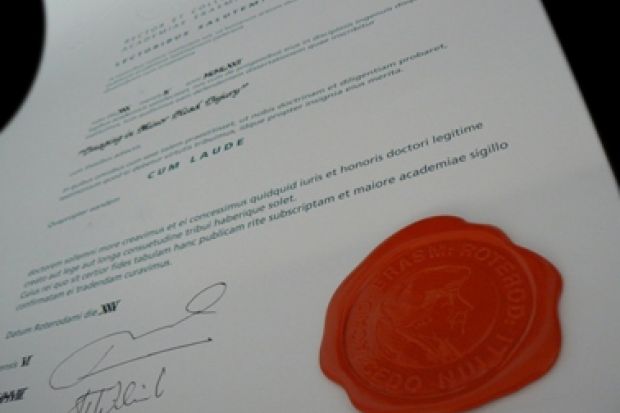Up to half of the world’s university teachers may lack postgraduate degrees because of the pressures of “massification”.
A report presented to the United Nations Educational, Scientific and Cultural Organisation’s (Unesco) 2009 World Conference on Higher Education in Paris this week warns that the “academic profession is under stress as never before”.
“The need to respond to the demands of massification has caused the average qualification for academics in many countries to decline,” says the report, Trends in Global Higher Education: Tracking an Academic Revolution by Philip Altbach, director of the Centre for International Higher Education, Boston College.
“While some developing countries still educate fewer than 10 per cent of the [18-21] age group, almost all countries have dramatically increased their participation rates.”
The percentage of the age cohort enrolled in tertiary education has grown from 19 per cent in 2000 to 26 per cent in 2007 – meaning that there are about 150.6 million tertiary students in the world today.
Dramatic expansion and the rise of private institutions have heaped pressure on academic standards. The report says that in China, just 9 per cent of academics hold doctorates; in India, the figure is 35 per cent.
It adds that the number of part-time academics is increasing in many countries. In Latin America, up to 80 per cent of the professoriate are employed part time.
The report also warns that “in terms of accountability and assessment, the professoriate has lost much of its autonomy. The pendulum of authority in higher education has swung from the academics to managers and bureaucrats, with significant impact on the university.”
Register to continue
Why register?
- Registration is free and only takes a moment
- Once registered, you can read 3 articles a month
- Sign up for our newsletter
Subscribe
Or subscribe for unlimited access to:
- Unlimited access to news, views, insights & reviews
- Digital editions
- Digital access to THE’s university and college rankings analysis
Already registered or a current subscriber? Login
